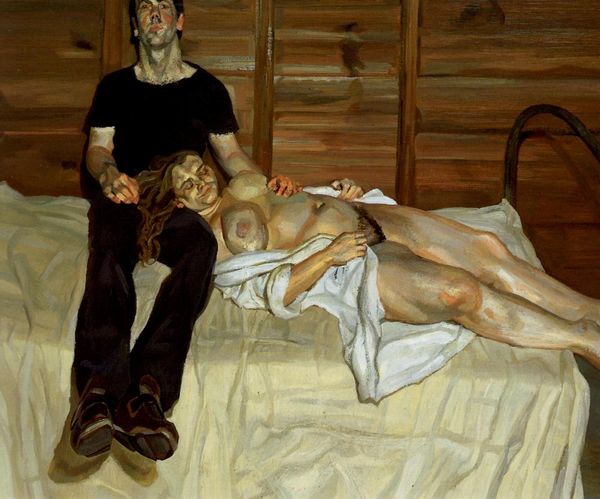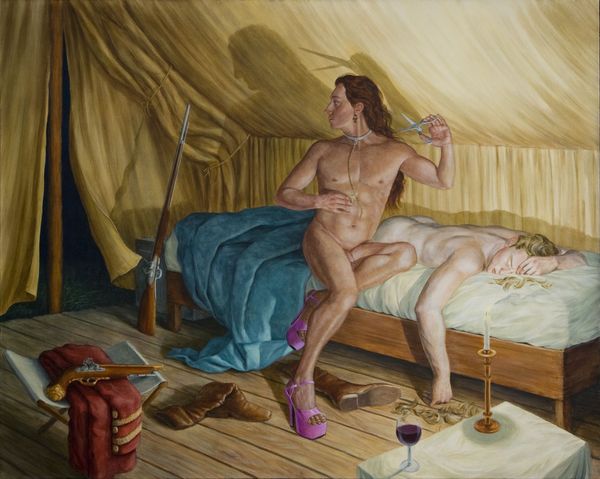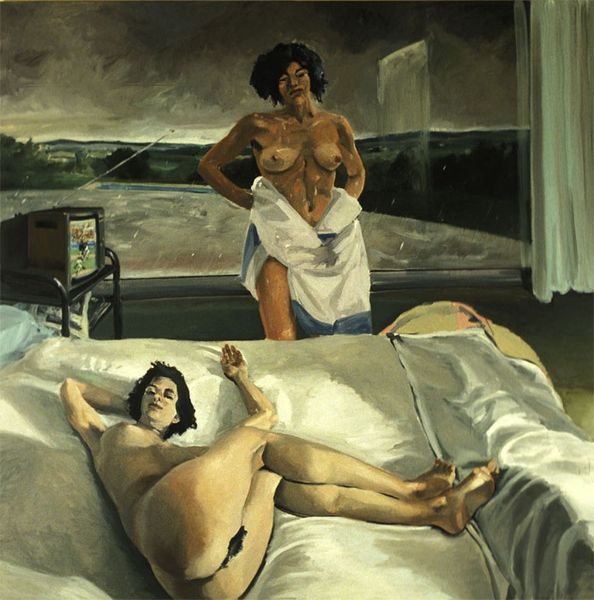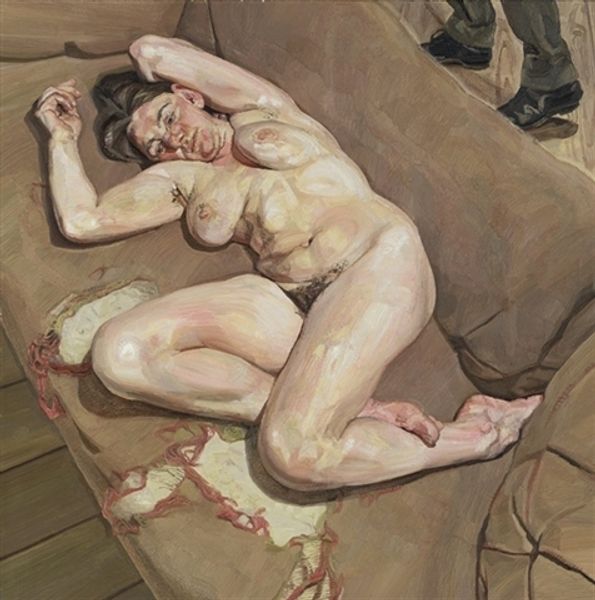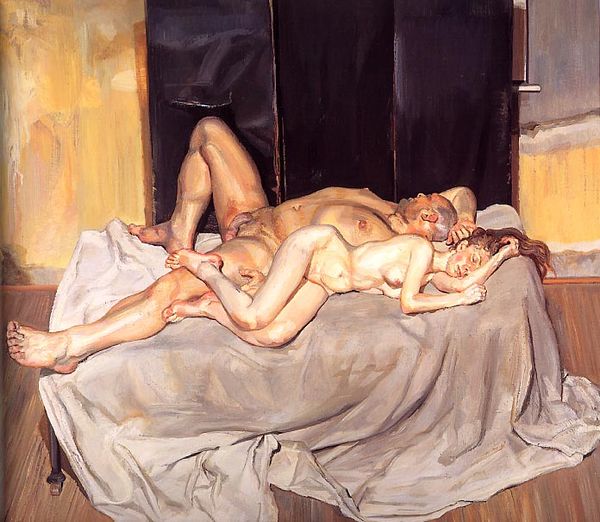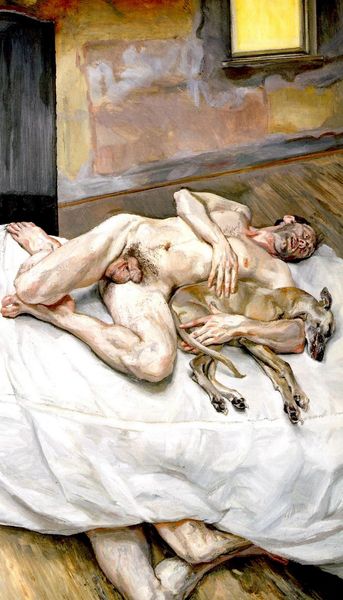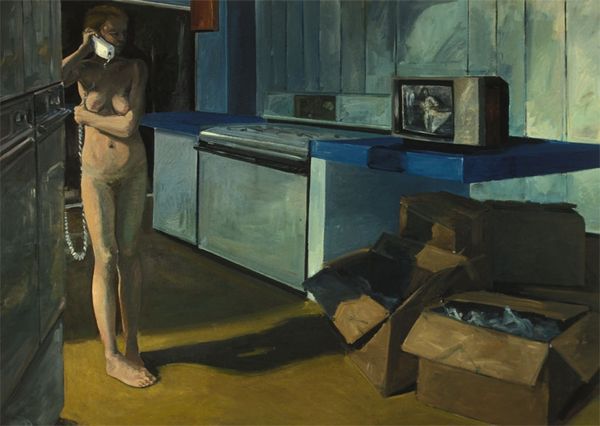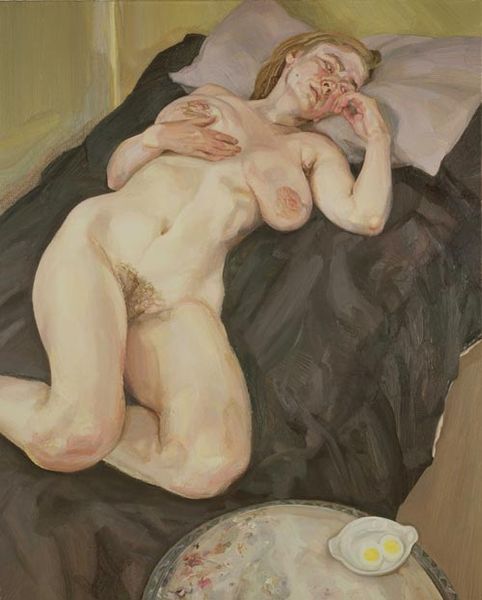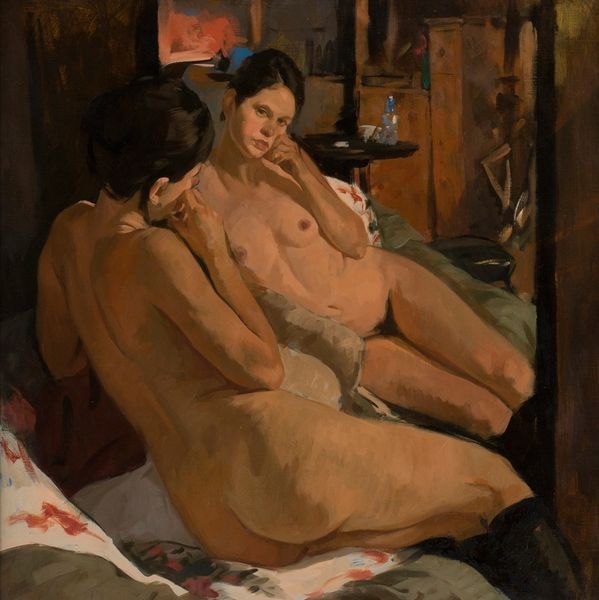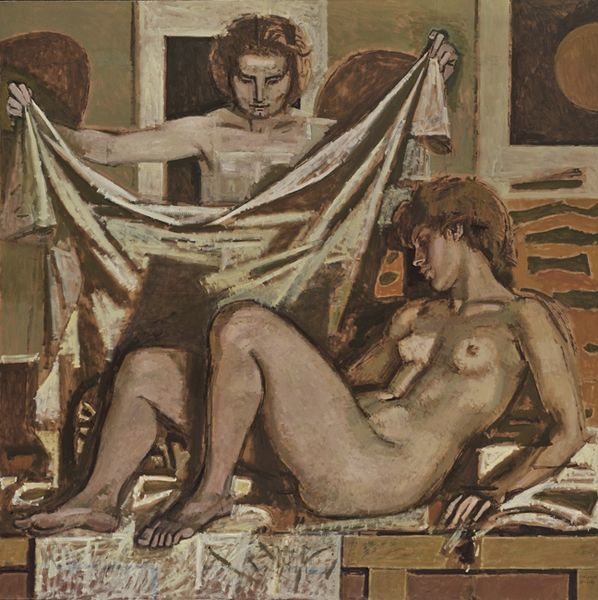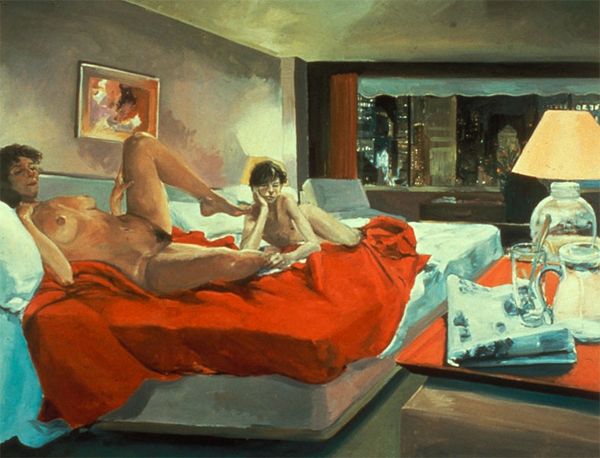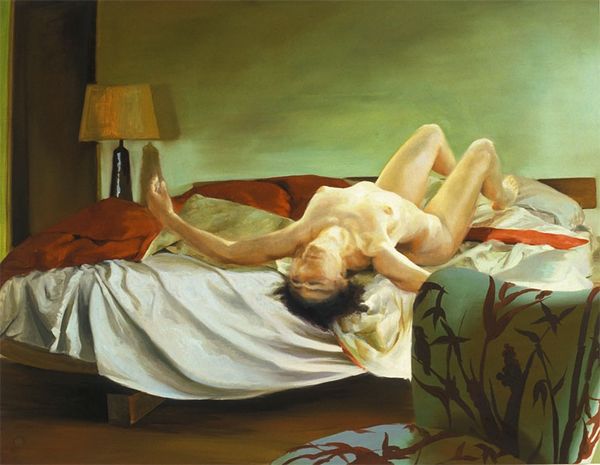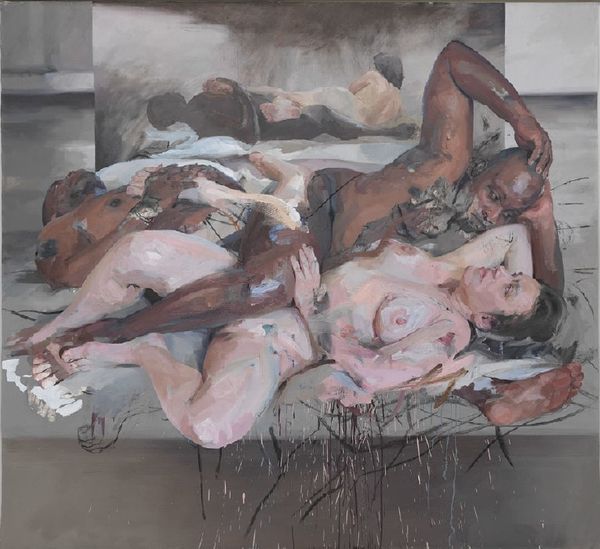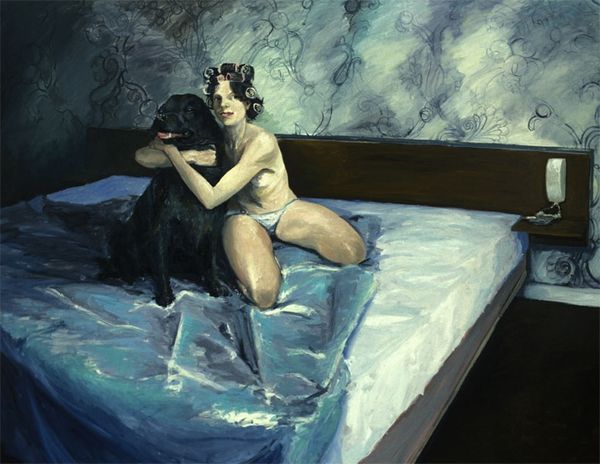
painting, oil-paint
#
portrait
#
contemporary
#
painting
#
oil-paint
#
figuration
#
oil painting
#
female-nude
#
genre-painting
#
nude
#
portrait art
#
modernism
#
male-nude
#
fine art portrait
#
realism
Copyright: Lucian Freud,Fair Use
Editor: This is Lucian Freud's "After Cezanne," created in 2000 with oil paint. What strikes me is its unflinching depiction of the nude body; there's a raw honesty that feels almost confrontational. How do you interpret this work? Curator: Well, its very title directs us to think about art history and lineage. It demands that we position this portrayal of bodies in relation to the Western art historical canon that historically marginalized the diverse and the dissident body. Are these figures idealized in any sense? What about the racial make up, gender identity, or physical ability of the people depicted in Cezanne’s world and the paintings made by his contemporaries? Who gains the privilege of seeing themselves immortalized in art? Editor: That's a perspective I hadn't considered. It feels like a deliberate departure from idealized nudes, almost a counter-narrative. Curator: Precisely. The title encourages us to think about Freud's politics of representation as challenging conventions. This painting could be understood as actively participating in disrupting conventional art historical values in representing identity. Do you notice how his artistic choices might reveal something about a critical socio-historical analysis? Editor: The non-idealized forms definitely speak to a rejection of traditional beauty standards. There’s a kind of social commentary embedded within the painting, that moves beyond aesthetics, it speaks to power. Curator: Absolutely! And how does that commentary resonate in our current sociopolitical landscape, where body image and representation remain deeply contested territories? What has changed, and more crucially, what remains unchanged? Editor: I see what you mean, thinking about how the politics of representation continue to evolve. Curator: Precisely. By engaging with these dialogues, this painting offers not just a visual experience, but an opportunity for critical reflection. Editor: It's much more than just a painting; it's a conversation starter. Thanks, that really broadened my understanding.
Comments
No comments
Be the first to comment and join the conversation on the ultimate creative platform.
